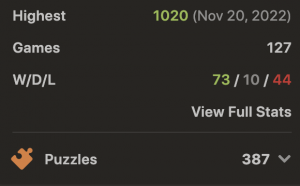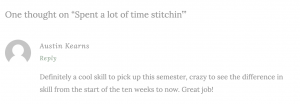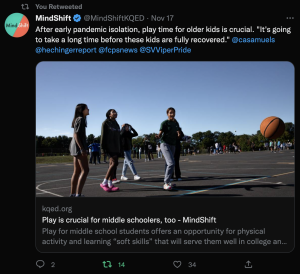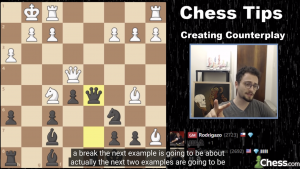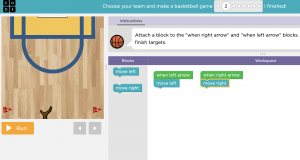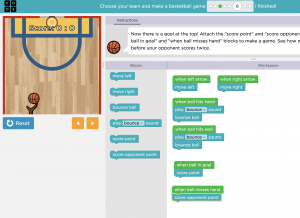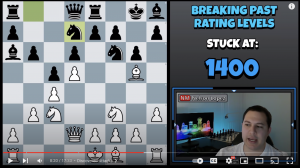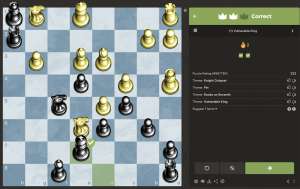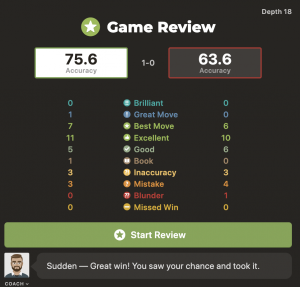In a blink of the eye our semester is concluding and so is my journey in developing myself as a chess protege. Throughout the semester I have both grown in self skill in the area of chess as well as better appreciating the professionals of the game. To begin I’ll recap my journey thus far before closing on my current remarks.
Week 1: Tackling Chess
Getting my bearings in chess and understanding basic concepts, not much of a definitive goal at this point just wanted to be able to vastly improve from the bottom of the knowledge barrel. Also got set up with my chess.com account where a majority of my learning would come from.
Week 2: Diving Deeper into Chess
This week I dove deeper into the actually strategies in chess, in this case through openings and how to start the game. I found Youtube to be a valuable resource to have some actual in game examples of openings in play. Also moved into playing bot games on the chess.com site.
Week 3: Education Tools and Live Streaming
For my joint post in week three, I used a program called OBS which was a great tool for live streaming or creating overlays for recordings. It worked well for me to include a webcam on to my puzzle session on the chess.com site.
Week 4: Chess is just math, or so it seems…
For week four, I furthered my understanding of calculations during the game and deducing if certain trades were overall profitable for me. I used various articles online and then used these ideas in games against opponents online.
Week 5: Pro chess players aren’t no jokes ..
For week five, I entertained myself with some professional matches to see the actual skill difference. (Definitely an eye opener) I then moved into some more puzzle play to grow my decision making skills and continued with my ladder climb.
Week 6: Pawns that Hang?
This week I did some research on the concept of pawn hanging and how it effected my strategies moving into games down the road. I’m also starting to see visual differences in players skill calibre to the computers I’ve gone up against thus far.
Week 7: Free trials and foxes that play chess
This week I signed up for the free trial of chess.com and was able to fully get my use out of the best online chess resource. This lead to larger array of puzzles and quizzes at my disposal to better my instincts in the game. I also checked into some different articles for space concepts which I could integrate into my game.
Week 8: Revisiting the pros
This week I revisited some pro gameplay and was better able to follow the strategy and thought processes that went through the game. (To an extent) I also went back to Youtube to try to get a better grasp of what thought processes were needed to grow past my ladder position that I currently found myself in.
Week 9: A full circle moment
This week I found myself finding the most growth in my online ranking with chess.com and found myself back watching the same Youtube channel for growth tips that I began my journey with. I was diving into counter plays trying to strengthen the concept in my own game.
To finish off the semester I found myself growing far further than I thought I would have going in. I think it shows how far you can get in something if you just put the effort in and try to improve. I would also say it highlights the power of technology and how much you can teacher yourself with only resources online and help from peers.
To start the semester I had a placement score of 400 on the chess.com site and here is my final progress and stat lines. Thanks for following along this semester!
